140 organic hotels found with water-saving measures (from 202)
140 organic hotels found with water-saving measures (from 202)
-
Standard Sortierung erklärt
Die Sortierung erfolgt nach der Anzahl von Punkten, die ein Organic hotel-Eintrag gesammelt hat (0 bis 400 Punkte).
Punkte erhält ein Eintrag für Vollständigkeit (ausgefüllte Eigenschaften und Bilder), Bewertungen und Premium.
In Kombination mit der Freitextsuche zeigen wir vorrangig zum Suchbegriff passende Organic hotels.
-
Distance from the center of the area
For towns, districts and postcode areas, the results can be sorted here by distance from the center.
-
17852 Serinyà, Spain
hotel type:Nature hotelNature hotelorganic content:at least 50% organicat least 50% organicadded to favorites list
Show favorites listremoved from favorites list
Show favorites list129Data is loading...
-
09456 Annaberg-Buchholz, Saxony, Germany
hotel type:Nature hotelNature hotelorganic content:at least 50% organicat least 50% organic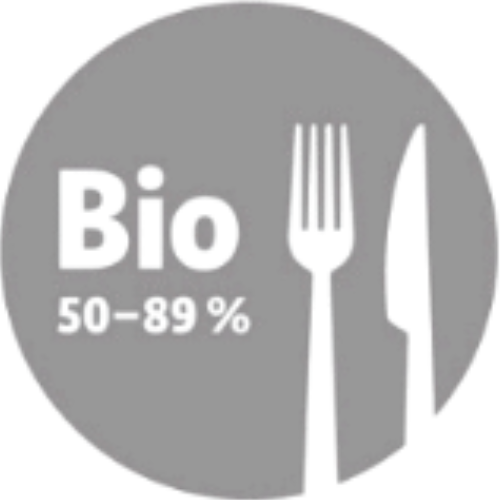
added to favorites list
Show favorites listremoved from favorites list
Show favorites list118Data is loading...
-
We love our island of freedom
25946 Norddorf auf Amrum, Schleswig-Holstein, Germany
hotel type:Nature hotelNature hotelorganic contentorganic content: not specifiedadded to favorites list
Show favorites listremoved from favorites list
Show favorites list92Data is loading...
-
In the heart of Freiburg's lifestyle
79098 Freiburg im Breisgau, Baden-Württemberg, Germany
hotel type:ORGANIC city hotelORGANIC city hotelorganic content:at least 90% organicat least 90% organicadded to favorites list
Show favorites listremoved from favorites list
Show favorites list91Data is loading...
-
Experience nature – right at the hotel
25832 Tönning, Schleswig-Holstein, Germany
hotel type:ORGANIC health hotel ORGANIC holiday hotel Organic restaurantORGANIC health hotelORGANIC holiday hotelOrganic restaurantorganic contentorganic content: not specifiedadded to favorites list
Show favorites listremoved from favorites list
Show favorites list91Data is loading...
-
Your path to more life energy – Casita Ayurveda Tenerife
38434 Icod de los Vinos, Canary Islands, Spain
hotel type:ORGANIC health hotel ORGANIC holiday hotel Organic seminar houseORGANIC health hotelORGANIC holiday hotelOrganic seminar houseORGANIC guesthouseorganic content:100% organic100% organicadded to favorites list
Show favorites listremoved from favorites list
Show favorites list90Data is loading...
-
Come as guests, leave as friends
1976 GK IJmuiden, Netherlands
hotel type:Organic holiday apartment / holiday home ORGANIC campingOrganic holiday apartment / holiday homeORGANIC campingorganic content:at least 20% organicat least 20% organicadded to favorites list
Show favorites listremoved from favorites list
Show favorites list86Data is loading...
-
Holiday in the Lake District
17255 Wustrow , Mecklenburg-Western Pomerania, Germany
hotel type:ORGANIC holiday hotel ORGANIC guesthouse Organic holiday apartment / holiday homeORGANIC holiday hotelORGANIC guesthouseOrganic holiday apartment / holiday homeNature hotelOrganic restaurantorganic content:100% organic100% organicadded to favorites list
Show favorites listremoved from favorites list
Show favorites list58Data is loading...
Water is precious
Water is a valuable commodity not only because it is more expensive in Germany than in any other country in the world. According to WWF, every German uses around 120 liters of water every day. If you include food and consumer goods, consumption is around 5,300 liters per day .
For hotels in particular, saving water is worthwhile from both an ecological and economic perspective.
The hotel and restaurant association DEHOGA determined the following water requirement per overnight stay (overnight stay) in 2016:
| category | Water requirements | Unit |
|---|---|---|
| 0-2 star hotel | 347 liters/night | per guest / night |
| 3 stars hotel | 250 liters/night | |
| 4 star hotel | 308 liters/day | |
| 5 stars hotel | 522 liters/day |
Source of the figures: DEHOGA energy campaign, surveys by the DEHOGA regional associations, environmental declarations, as of: 2014 ( https://www.dehoga-bundesverband.de/fileadmin/Startseite/05_Themen/Energie/DEHOGA_Umweltbroschu__re_Oktober_2016.pdf )
The relatively high water consumption in the 5-star hotel segment is due to the greater comfort. Due to large wellness areas, pools, saunas and SPA, water consumption per night increases noticeably.
Modern renovation measures to sanitary facilities that combine environmental protection and cost-effectiveness include:
- Water stop for cisterns
- Sensor technologies on faucets
- Waterless urinals
- Water-saving shower heads and faucets
Water really only flows here when it should flow or it doesn't flow at all if it can be avoided.
- A water stop for toilet cisterns helps reduce water consumption by up to 65% every time you flush the toilet.
- The digital sensor technology on a faucet triggers the water flow without contact and keeps it as economical as possible and at the same time this technology is more hygienic .
- So-called dry urinals are clean, low-odor, long-lasting, low-maintenance even without water and improve the ecological balance. A dry urinal is therefore a good investment for a hotel in sustainable and economical operation as well as in comfort and hygiene .
- Another water saving technique is based on enriching the water with air . A water-saving shower head mixes water and air - for less water consumption and velvety-soft water drops at the same time. In the tap, too, the water jet is guided through sieves and enriched with air. Air bubbles are mixed into the water, resulting in a voluminous jet of water that feels very pleasant and soft at the same time.

save water
Up to 84% water can be saved through the measures mentioned.
Why is high water consumption harmful to the environment?
Higher water consumption means more water treatment, which in turn requires a lot of energy and is therefore harmful to the environment. Lower water consumption through water saving measures reduces CO2 emissions and protects the environment.
Sustainable action when dealing with water is immensely important in terms of environmental protection.
Climate and water balance of different diets
Another very important measure for saving water is your diet. Compared to vegetarian and omnivorous diets, a vegan diet not only has the lowest CO2 consumption but also the lowest water consumption.
| Diet | CO2 consumption in kilograms* | Water consumption in cubic meters** |
| Vegan | 940 | 710 |
| Vegetarian | 1,160 | 1,060 |
| meat eater | 1,760 | 1,580 |
Source of figures: *UBA CO2 calculator, **Water Footprint Network
Interesting Organic hotels
Premium Organic hotels are displayed here.
-
 BIO-NATURIDYLL WIESENGRUND
BIO-NATURIDYLL WIESENGRUND
Time out in Saxon Switzerland - from the end of November 2024
Struppen -
 il nido
il nido
the nest in the Tyrolean mountains
Nassereith -
 FLUX Biohotel im Werratal
FLUX Biohotel im Werratal
Everything flows
Hann. Münden -
 Biohotel Schönhagener Mühle
Biohotel Schönhagener Mühle
Pure relaxation in the silence of the Prignitz
Pritzwalk -
 Bio- & Nationalpark-Refugium Schmilka
Bio- & Nationalpark-Refugium Schmilka
The unique experience in Saxon Switzerland
Bad Schandau OT Schmilka -
 Ostsee Baumhaushotel Schleswig-Holstein
Ostsee Baumhaushotel Schleswig-Holstein
One with nature, sustainable with vision
Wangels
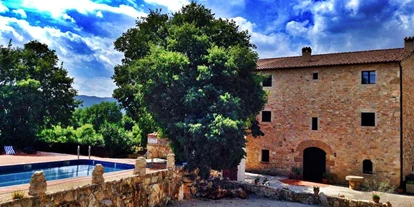
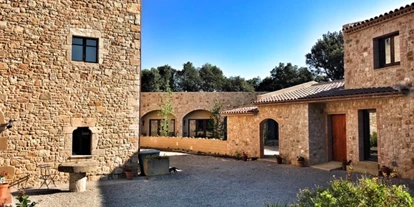
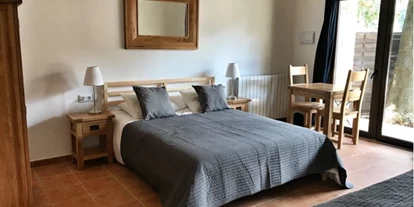






























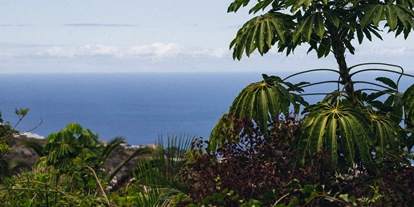





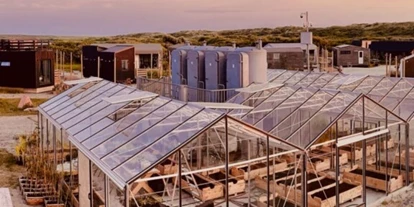
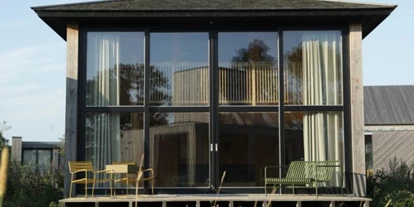
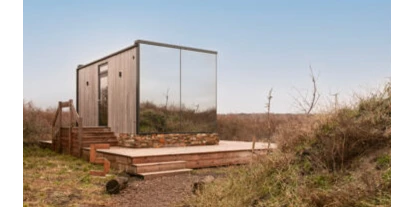
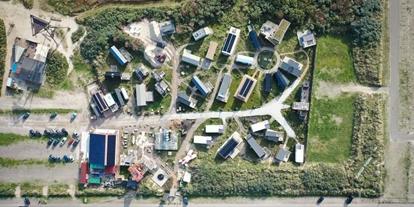
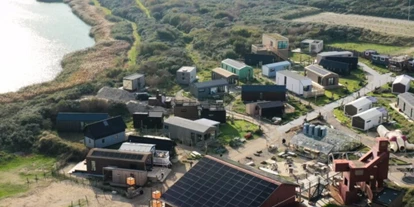
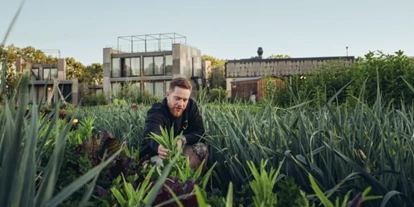
)

.png)